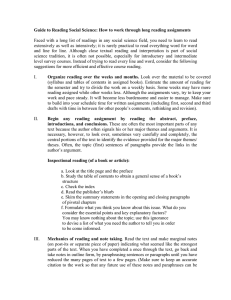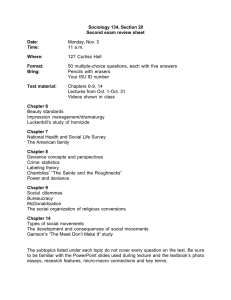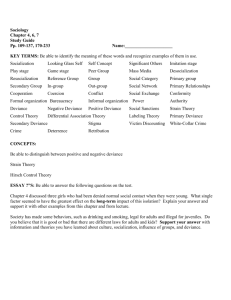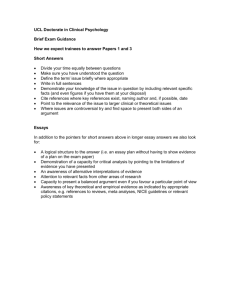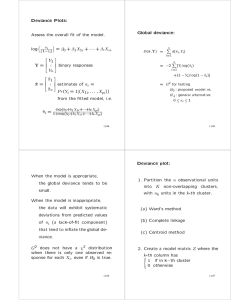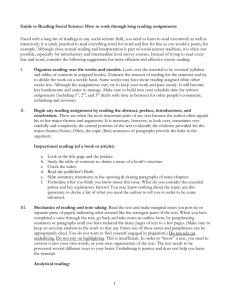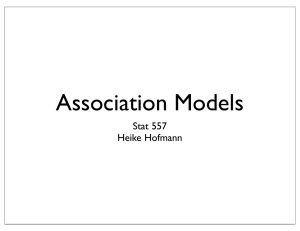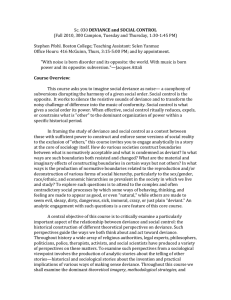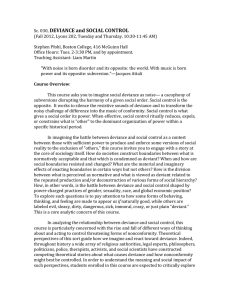THE HISTORY OF ANTHROPOLOGICAL THEORY ANTHROPOLOGY 200-010 FALL 2010 CRITICAL READING TIPS
advertisement
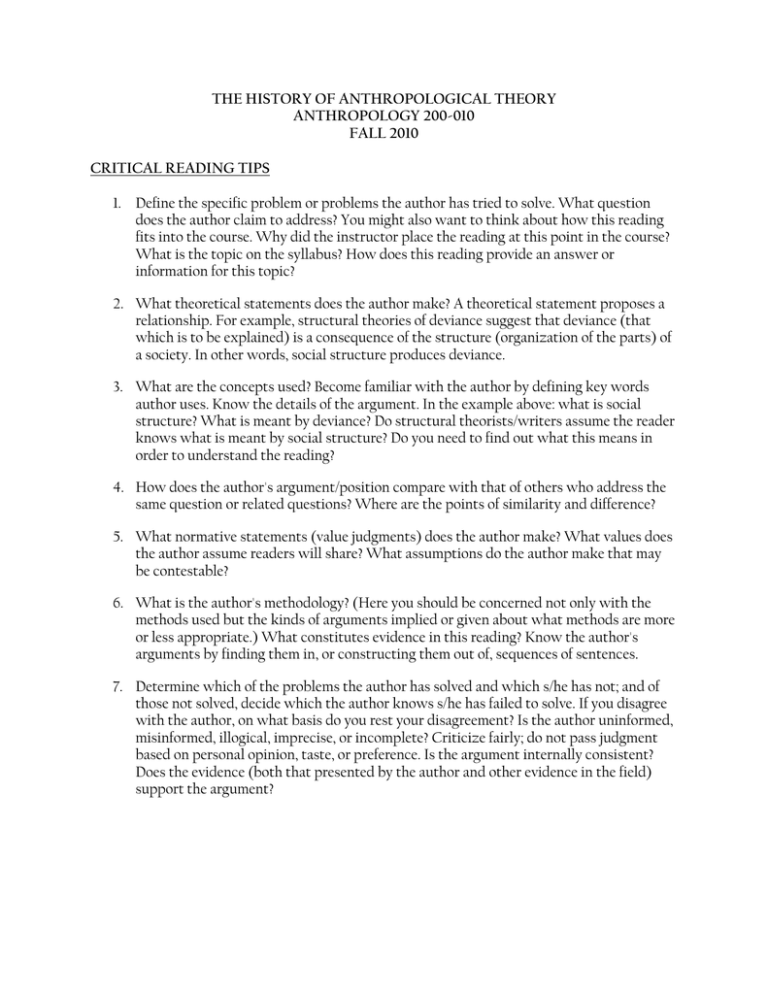
THE HISTORY OF ANTHROPOLOGICAL THEORY ANTHROPOLOGY 200-010 FALL 2010 CRITICAL READING TIPS 1. Define the specific problem or problems the author has tried to solve. What question does the author claim to address? You might also want to think about how this reading fits into the course. Why did the instructor place the reading at this point in the course? What is the topic on the syllabus? How does this reading provide an answer or information for this topic? 2. What theoretical statements does the author make? A theoretical statement proposes a relationship. For example, structural theories of deviance suggest that deviance (that which is to be explained) is a consequence of the structure (organization of the parts) of a society. In other words, social structure produces deviance. 3. What are the concepts used? Become familiar with the author by defining key words author uses. Know the details of the argument. In the example above: what is social structure? What is meant by deviance? Do structural theorists/writers assume the reader knows what is meant by social structure? Do you need to find out what this means in order to understand the reading? 4. How does the author's argument/position compare with that of others who address the same question or related questions? Where are the points of similarity and difference? 5. What normative statements (value judgments) does the author make? What values does the author assume readers will share? What assumptions do the author make that may be contestable? 6. What is the author's methodology? (Here you should be concerned not only with the methods used but the kinds of arguments implied or given about what methods are more or less appropriate.) What constitutes evidence in this reading? Know the author's arguments by finding them in, or constructing them out of, sequences of sentences. 7. Determine which of the problems the author has solved and which s/he has not; and of those not solved, decide which the author knows s/he has failed to solve. If you disagree with the author, on what basis do you rest your disagreement? Is the author uninformed, misinformed, illogical, imprecise, or incomplete? Criticize fairly; do not pass judgment based on personal opinion, taste, or preference. Is the argument internally consistent? Does the evidence (both that presented by the author and other evidence in the field) support the argument?
